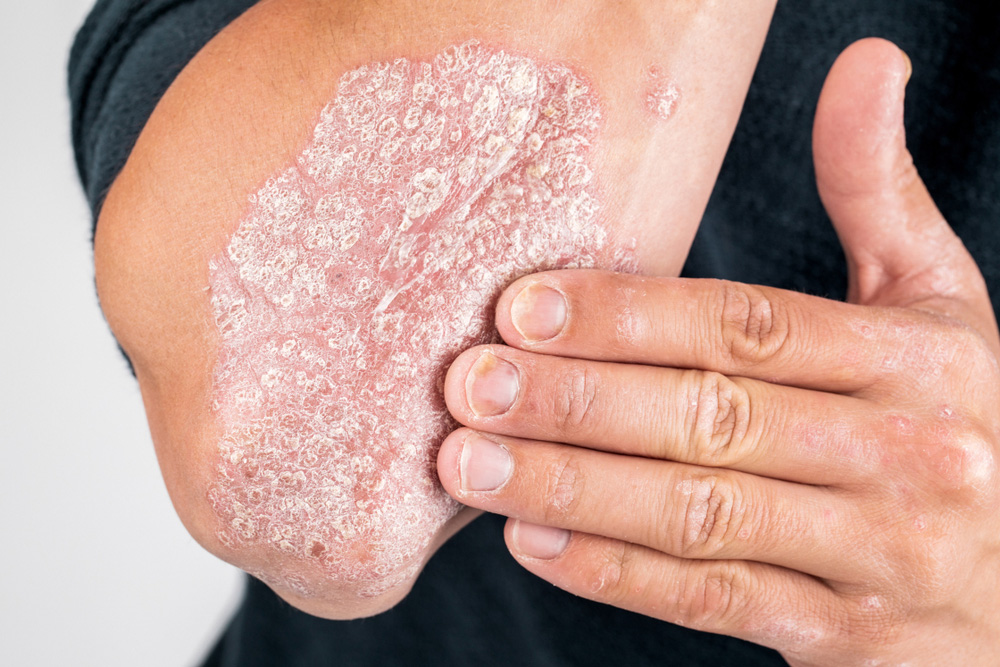
Psoriasis is the condition of the skin where the skin cells start to multiply at abnormal levels. Usually, cell regeneration occurs and balances with the dead skin cells. Since the skin cells start to develop abnormally, they rise to the top of your skin and die out leaving behind a red plaque covered with white scales. They typically occur on the knees, elbows and sometimes in your scalp. There are many reasons attributed to why skin cells behave abnormally. The common reason is that they are linked to the way your immune system performs.
This illness is characterized by over-multiplication of skin cells up to 10 times faster than normal growth. As dead underlying cells reach the skin’s surface, their voluminous accumulation causes raised, red plaques that gets covered with white scales. This disease typically happens on the elbows, knees and scalp. Psoriasis can also affect the palms, torso and soles of the feet. Psoriasis, can also at time be found associated with psoriatic arthritis, which leads to swelling and pain in the joints. It is estimated that in India there is 10 to 30 per cent of people who have psoriasis also are sufferers of psoriatic arthritis.
Psoriasis can happen for several reasons ranging from trauma, emotional stress to streptococcal infection. A recent study of this disease has indicated that some abnormality in the immune system is the factor that triggers this disease. There are five different types of psoriasis:
© 2023 | Dr. Shail Agarwal | All rights reserved.